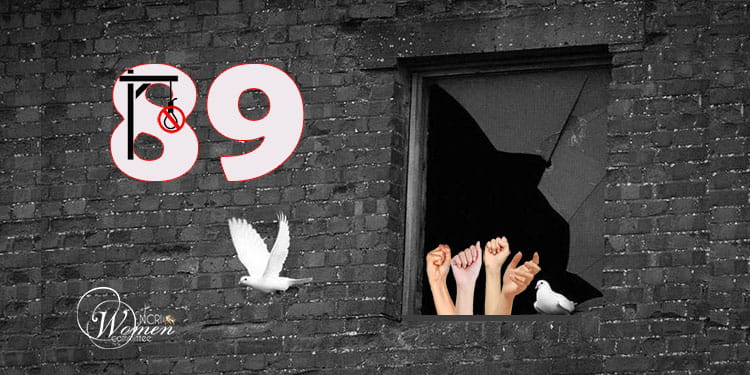As the 89th week of the nationwide campaign “No to Execution Tuesdays” continues across 52 prisons in Iran, the families of death row political prisoners have infused this movement with new moral and social depth through their active participation and powerful public messages.
The “No to Execution Tuesdays” Campaign, in its most recent statement, released on the eve of the World Day Against the Death Penalty, declared: “While the global community moves toward abolishing or restricting the death penalty, the ruling regime in Iran continues to break new records in executions and state violence.”
The statement also condemned the execution of six Ahwazi Arab prisoners and one Kurdish political prisoner on September 30, emphasizing that the Supreme Court’s recent confirmation of the death sentence for Mohammad Javad Vafaee-Sani is “a clear sign of the regime’s ongoing policy of repression through death.”
Families: The Beating Heart of the Anti-Execution Movement
Since the inception of “No to Execution Tuesdays,” families of political prisoners and death row inmates have formed the backbone of this campaign. Mothers, fathers, spouses, and children of prisoners have become the voices of the voiceless—joining rallies, writing open letters, and staging symbolic hunger strikes to raise awareness of their loved ones’ plight.
They stress that their struggle is not only to save their own family members, but to end the death penalty as a tool of revenge and intimidation in the judiciary of Iran’s theocratic regime. The presence of these families—especially the mothers—has imbued the campaign with a profound moral and human dimension, awakening the conscience of society.
“No to Execution Tuesdays”: A Social, Organized, and Conscious Movement
Eighty-nine consecutive weeks of the “No to Execution Tuesdays” campaign show that it has grown into a genuinely social, organized, and conscious movement—one that, in the face of the regime’s policy of death, speaks out for the right to life and justice.
The aim of this campaign is not limited to overturning political death sentences; it calls for the total abolition of the death penalty for all citizens, regardless of their charges or beliefs.
The clerical regime seeks to silence this voice through repression and executions. Yet the continued expansion of this movement proves that the desire for life, justice, and freedom is far stronger than the machinery of death.
